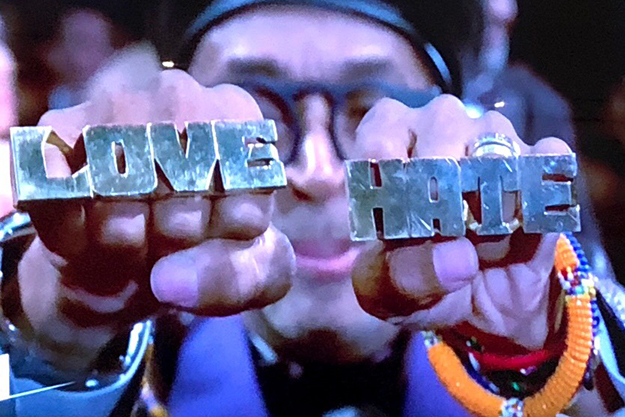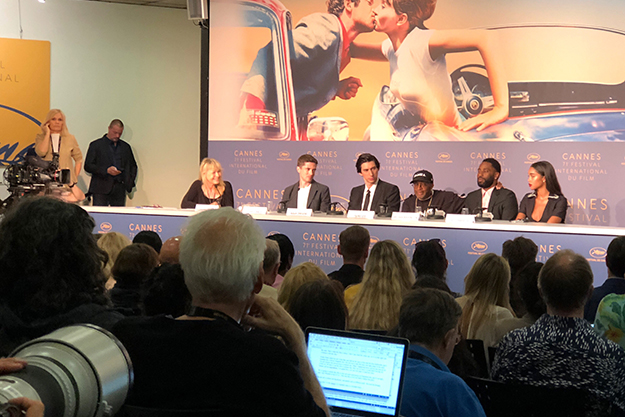Spike Lee attended the world premiere of his BlacKkKlansman at Cannes last night brandishing a pair of brass knuckles—one with the word LOVE and the other HATE—like those worn by the iconic character Radio Raheem in Do the Right Thing, a film that was notoriously snubbed of the Palme d’Or in 1989. Some two hours later, Lee emerged triumphant, receiving a massive standing ovation. Journalists’ reactions to the film have been overwhelmingly positive as well, leading to a jammed press conference this morning, where the director was greeted with extended applause. BlacKkKlansman marks Lee’s first time back in the festival’s competition in 27 years. Set in the late ’70s, the film follows a young, black detective in Colorado who goes undercover to infiltrate and investigate the Ku Klux Klan. It may sound like the basis for a Dave Chappelle comedy sketch, and Lee says he quipped as much when producer Jordan Peele first pitched him the movie, to be adapted from Ron Stallworth’s memoir. Yet Lee soon saw important links between then and now. It was while watching live television coverage last summer of the violence that erupted in Charlottesville, Virginia, after a white supremacist demonstration that Lee realized the even greater sense of urgency for his next film. Without revealing a climactic scene from BlacKkKlansman, it’s safe to say that events from Charlottesville, including the murder of Heather Heyer, who was killed when a Nazi sympathizer drove a car into a group of counter protestors, are reflected in some of the film’s most harrowing moments. (Before moving forward, he called Heyer’s family to get their blessing.) Though certain moments contain broad comedy or biting satire, like Do the Right Thing, much of the film is rooted in dramatically exploring modern race relations. Whereas that 1989 movie looked at police brutality, gentrification, and systemic racism, BlacKkKlansman examines the rise of nationalist groups in the United States, linking them to today’s world. “As with Do the Right Thing, the purpose of that film was to spur discussion and I think that applies to this film. Too many people are walking around in a daze. People are zonked out. We have to be vocal,” Lee said. “This film, to me, is a wake-up call.” Distributor Focus Features will release BlacKkKlansman in August—the one-year anniversary of the Virginia events and just a few months before the American midterm elections.
Lee was outspoken about the connections between his film and the situation in the U.S. today. He never actually said the name of the current president during the press conference, though he did refer to him multiple times: “That motherfucker was given a chance to say we’re about love and not hate. And that motherfucker did not denounce the motherfucking Klan, the alt-right, and those Nazi motherfuckers. It was a defining moment; he could have said to the world that we are better than that.” Lee was asked if he maintains an optimistic outlook about his country, despite his bleak assessment of the current moment. “I do believe in hope,” he responded. “I think that Do the Right Thing is a hopeful film. But I’m not blind or deaf. I think that you can be hopeful and still be aware of what is happening. This is a global problem. I do hope that people in other countries will see that this is happening where they live. All I hope is that film shakes people from their slumber.” Addressing the room of mostly international journalists, Lee continued: “I know in my heart—I don’t care what the critics say or anybody else—we are on the right side of history with this film. Please do not leave here thinking that what you’ve just seen is a problem only in the United States. Think of this film in global terms. How are you treating Muslims? How are you treating immigrants? You got your own shit, too. Not just America.” Eugene Hernandez is Deputy Director of the Film Society of Lincoln Center and Co-Publisher of Film Comment.

